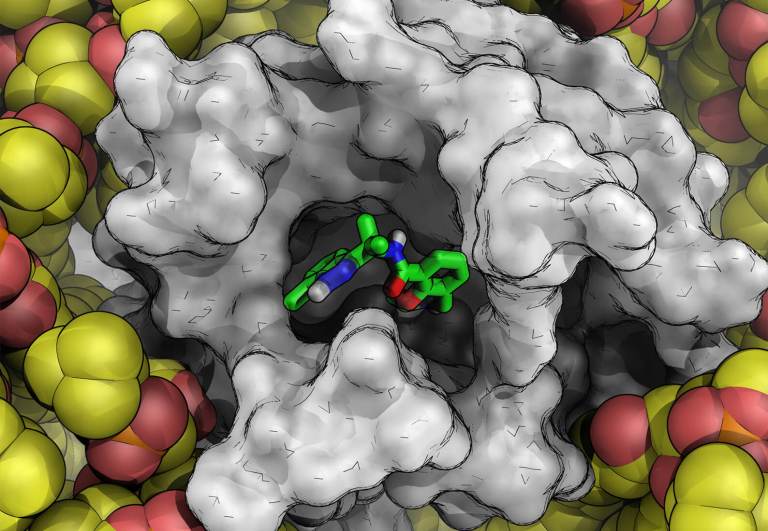 Case Study
Life Science
Case Study
Life Science
 Case Study
Life Science
Case Study
Life Science
 White Paper
Life Science
White Paper
Life Science
 White Paper
Life Science
White Paper
Life Science
- Documentation
DeepAutoQSAR
Predict molecular properties based on chemical structure using machine learning (ML).
- Learning Path
Learning Path: Virtual Screening
A structured overview of how to construct a virtual screening pipeline.
- Tutorial
Training and Evaluating ADMET Models with DeepAutoQSAR
Build and test two models for predicting aqueous solubility using a large dataset.
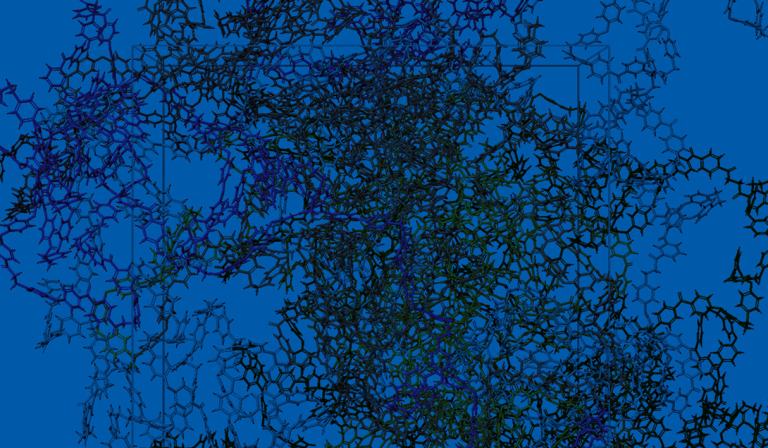 Webinar
Life Science
Webinar
Life Science
- Oct 4, 2023
Leveraging machine learning applications combined with physics-based modeling for drug discovery
Machine learning strategies in drug discovery are becoming increasingly popular and can be used in various areas.
- Publication
- Dec 5, 2022
Pathfinder-Driven Chemical Space Exploration and Multiparameter Optimization in Tandem with Glide/IFD and QSAR-Based Active Learning Approach to Prioritize Design Ideas for FEP+ Calculations of SARS-CoV-2 PLpro Inhibitors
Gumede NJ., Molecules, 2022, 27, 8569- Publication
- Mar 11, 2022
A Descriptor Set for Quantitative Structure-Property Relationship Prediction in Biologics
Kannan Sankar, et al. Mol Inform, 2022 Webinar
Life Science
Webinar
Life Science
- Feb 2, 2022
Trends in modern hit discovery: How your ultra-large screens can benefit from machine learning
While traditional structure-based virtual screening has been successful in finding diverse hits to advance projects there is significant room for improvement of hit rates, diversity of hit chemotypes, available IP space explored, and the potency of unoptimized hits.
- Publication
- Jul 1, 2020
Digitalisierung: molekulares Design plattformisieren
Scarbath-Evers, et al. Nachrichten aus der Chemie, 2020, Jul (68), 34-36Case Studies
 Case Study
Life Science
Materials Science
Case Study
Life Science
Materials Science
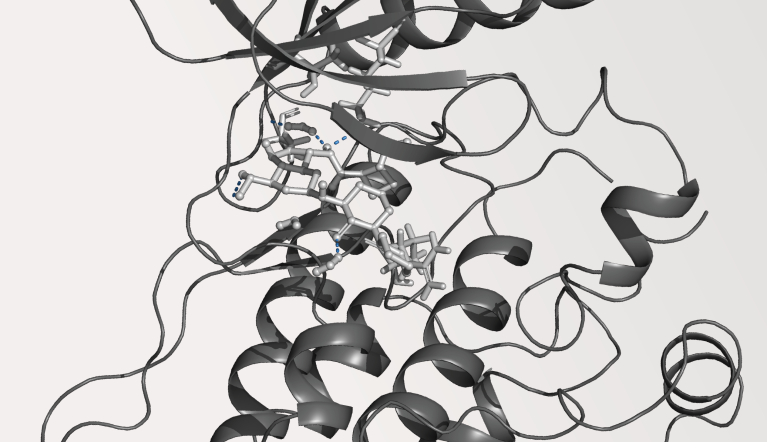 Case Study
Life Science
Case Study
Life Science
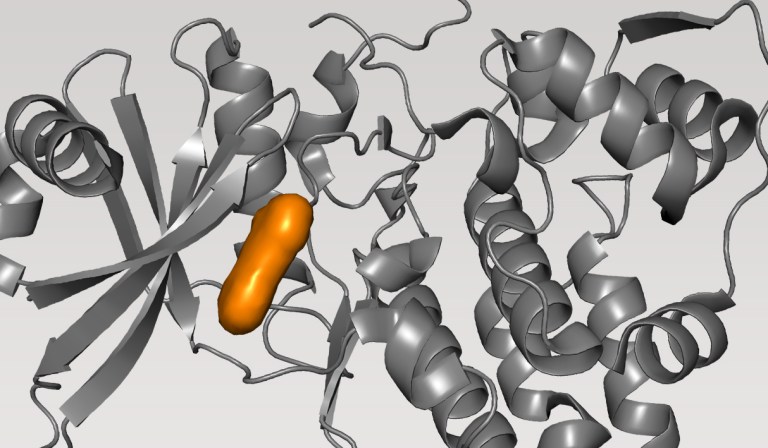 Case Study
Life Science
Case Study
Life Science
Documentation
- Documentation
WaterMap
Efficiently converged MD simulations are run with explicit water molecules, and resultant trajectories are analyzed to cluster hydration sites.
- Documentation
SiteMap
Identify binding sites, including allosteric binding sites and protein-protein interfaces, and evaluate their druggability.
- Documentation
Shape Screening
A ligand-based workflow for efficiently screening ultra-large purchasable or synthesizable compound libraries.
Events
 Event
Life Science
Materials Science
Event
Life Science
Materials Science
- Aug 31st – Sep 4th, 2025
EFMC-ASMC 2025
Schrödinger is excited to be participating in the EFMC-ASMC 2025 conference taking place on August 31st – September 4th in Porto, Portugal.
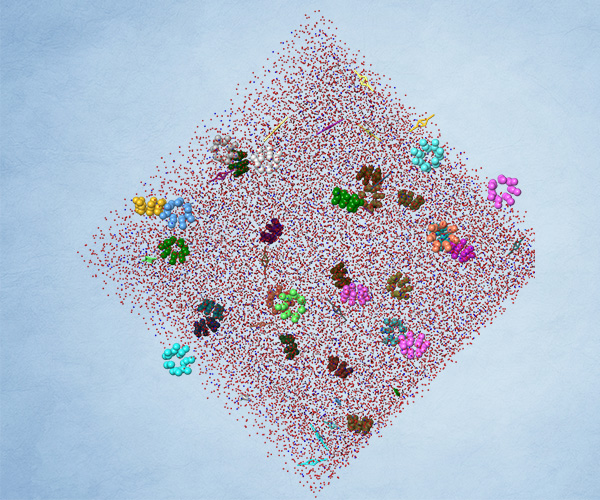 Webinar
Life Science
Materials Science
Webinar
Life Science
Materials Science
- Sep 2nd-16th, 2025
Innovations in Digital Chemistry: Computational Approaches for Drug & Materials Discovery
This webinar series will explore how cutting-edge computational methods are revolutionizing the design and optimization of pharmaceutical drugs, biologics , and advanced materials.
 Event
Life Science
Materials Science
Event
Life Science
Materials Science
- Sep 7th-9th, 2025
13th Crystal Forms Convention
Schrödinger is excited to be participating in the 13th Crystal Forms Convention conference taking place on September 7th – 9th in Bologna, Italy.
Learning Paths
- Learning Path
Learning Path: Oligonucleotide Modeling
A structured overview of tools and workflows for nucleic acids in drug discovery.
- Learning Path
Learning Path: Computational Structure Prediction
A structured overview of tools and workflows for predicting biomacromolecular structures in whole or in part.
- Learning Path
Learning Path: Virtual Screening
A structured overview of how to construct a virtual screening pipeline.
Training Videos
 Video
Life Science
Video
Life Science
Getting Going with Maestro BioLuminate
A free video series introducing the basics of using Maestro Bioluminate.
 Video
Life Science
Video
Life Science
- Video
Introducing Ligand Designer
An overview of the LigandDesigner workflow, Editing in 2D and 3D, using display options and overlays, and accessing the Admin Panel.
Publications
- Publication
- Jul 8, 2025
Enabling in-silico Hit Discovery Workflows Targeting RNA with Small Molecules
Chopra, et al. J Chem Inf Model, 2025, 1, 40626899- Publication
- Jun 5, 2025
STX-721, a Covalent EGFR/HER2 Exon 20 Inhibitor, Utilizes Exon 20–Mutant Dynamic Protein States and Achieves Unique Mutant Selectivity Across Human Cancer Models
Pagliarini, et al. Translational Cancer Mechanisms and Therapy, 2025- Publication
- Apr 17, 2025
Active Learning FEP: Impact on Performance of AL Protocol and Chemical Diversity
Lonsdale, et al. Journal of Chemical Theory and Computation, 2025Quick Reference Sheets
- Quick Reference Sheet
GlideMap
A one-page guide to using the GlideMap GUI for ligand placement guided by experimental density.
- Quick Reference Sheet
Synthesis Queue LiveReport
Use Freeform columns to track the status of compounds in a synthesis queue.
- Quick Reference Sheet
Modeling Queue LiveReport
Learn how to use Freeform columns and an Auto-Update Search to create compound progression workflows.
Tutorials
- Tutorial
Structure-Based Virtual Screening using Glide
Prepare receptor grids for docking, dock molecules and examine the docked poses.
- Tutorial
Ligand Binding Pose Prediction for FEP+ using Core-Constrained Docking
Generate starting poses for FEP simulations for a series of BACE1 inhibitors using core constrained docking.
- Tutorial
Antibody Visualization and Modeling in BioLuminate
Visualize, build, and evaluate antibody models, analyze an antibody for various characteristics, dock an antigen to an antibody.
Webinars
 Webinar
Life Science
Materials Science
Webinar
Life Science
Materials Science
- Sep 2nd-16th, 2025
Innovations in Digital Chemistry: Computational Approaches for Drug & Materials Discovery
This webinar series will explore how cutting-edge computational methods are revolutionizing the design and optimization of pharmaceutical drugs, biologics , and advanced materials.
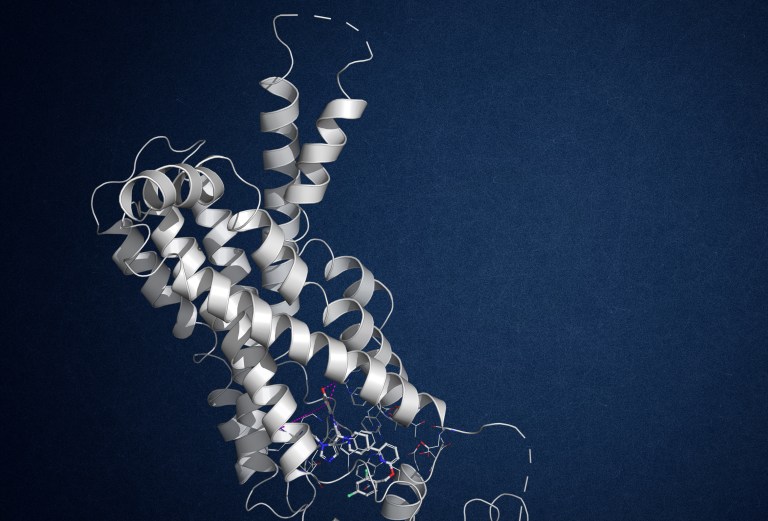 Webinar
Life Science
Webinar
Life Science
- Sep 23, 2025
Building stable and accurate FEP models for agonist affinity for GPCRs
In this webinar, Ferran Planas will discuss how the team at Lundbeck routinely uses FEP to predict binding affinities for GPCR agonists.
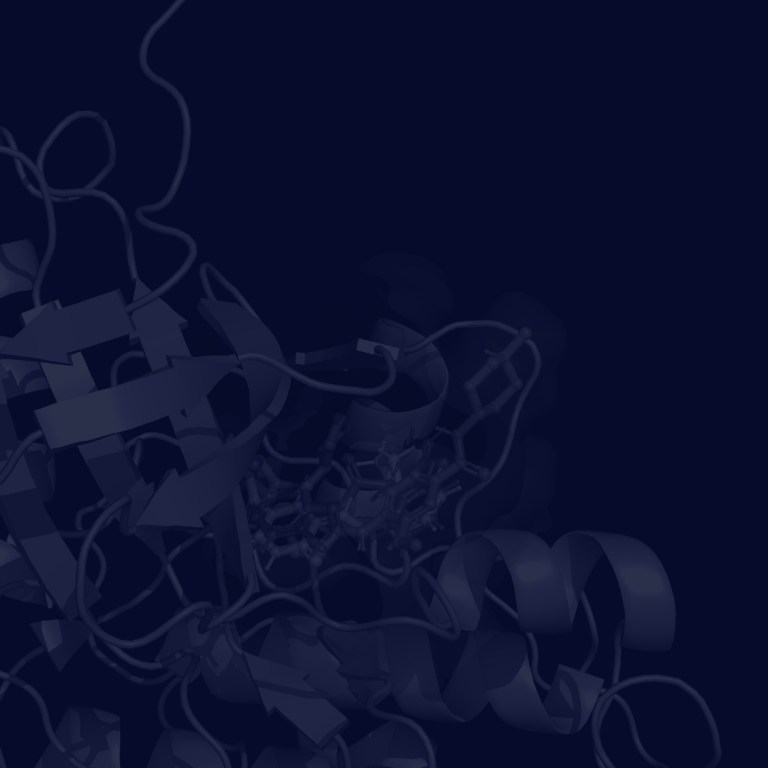 Webinar
Life Science
Webinar
Life Science
- Sep 24, 2025
Schrödinger デジタル創薬セミナー: Into the Clinic ~計算化学がもたらす創薬プロセスの変貌~ 第19回
Computational strategies for discovering and optimizing RNA- and DNA-targeting molecules
White Papers
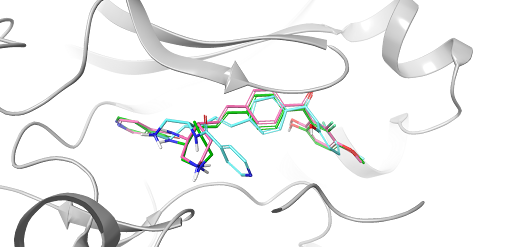 White Paper
Life Science
White Paper
Life Science
- Oct 29, 2024
20 Years of Glide: A Legacy of Docking Innovation and the Next Frontier with Glide WS
Glide has long set the gold standard for commercial molecular docking software due to its robust performance in both binding mode prediction and empirical scoring tasks, ease of use, and tight integration with Schrödinger’s Maestro interface and molecular discovery workflows.
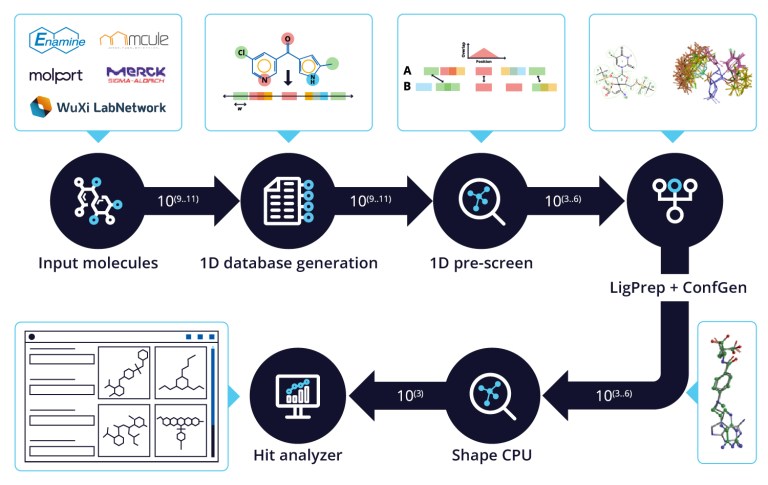 White Paper
Life Science
White Paper
Life Science
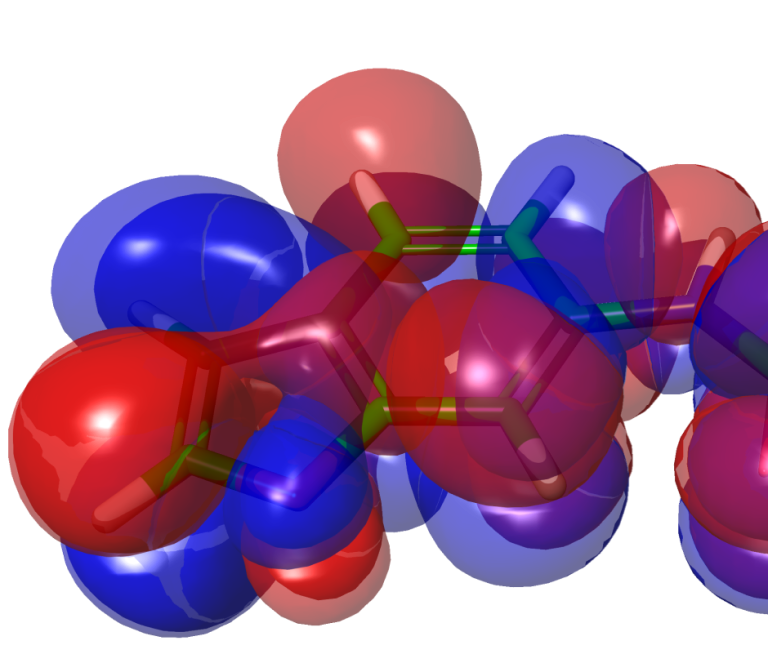 White Paper
Life Science
White Paper
Life Science

Latest insights from Extrapolations blog
Training & Resources
Online certification courses
Level up your skill set with hands-on, online molecular modeling courses. These self-paced courses cover a range of scientific topics and include access to Schrödinger software and support.
Free learning resources
Learn how to deploy the technology and best practices of Schrödinger software for your project success. Find training resources, tutorials, quick start guides, videos, and more.


